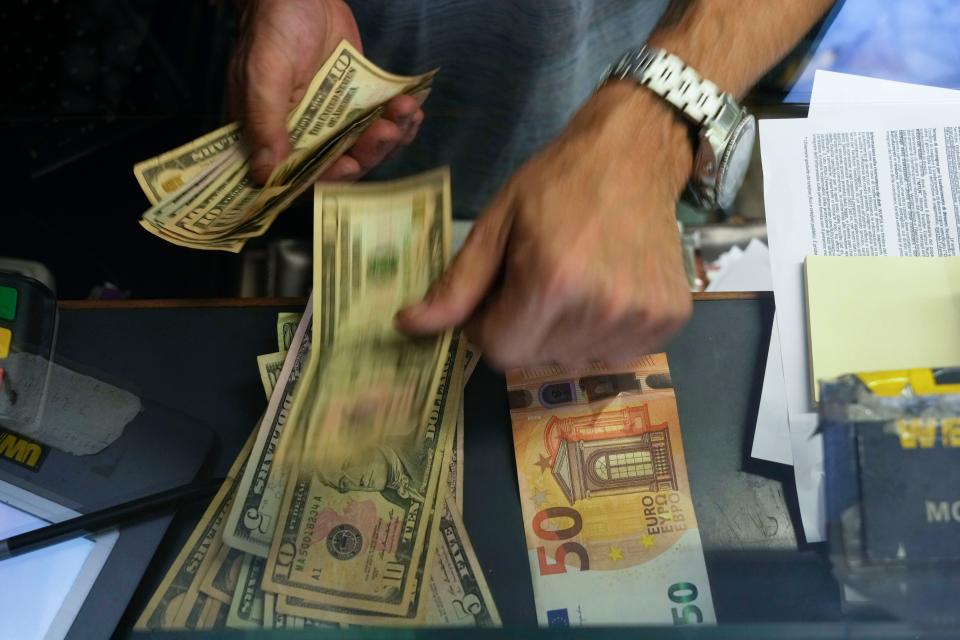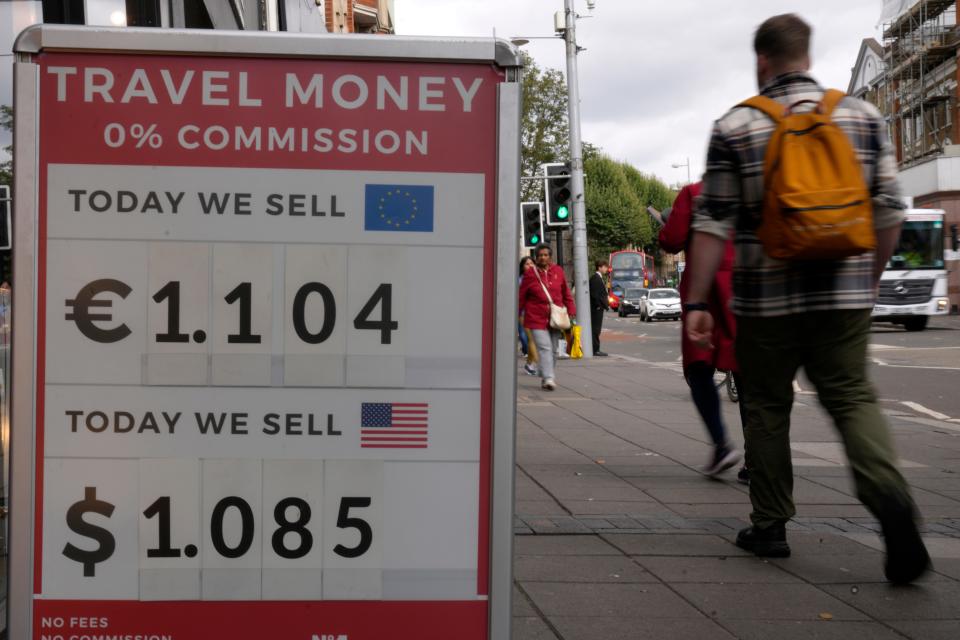Doc’s Prescription: U.S. dollar remains strong
As the world’s most important currency, the U.S. dollar frequently appreciates during times of turmoil. The dollar has appreciated significantly for several reasons: (1) The Federal Reserve has raised interest rates in order to bring down the highest rate of inflation in decades; (2) Investors believe it is safe and stable; and (3) The dollar has benefitted from the growing concerns about global economic growth.

On a relative basis, the U.S. economy is performing well. Russia’s invasion of Ukraine and the COVID-19 pandemic have weighed heavily on European economies. China’s economic outlook remains grim. Mattie Bekink, China director for the Economist Intelligence Corporate Network, said, “Zero-COVID policy has essentially stomped on human investor confidence in China.” Japan’s economy has slowed as the growing risks of a global economic slowdown and supply woes plague Japanese exporters.

Three interrelated factors support the dollar:
1. Strong economic growth tends to produce a rising currency. The U.S. economy has outpaced recoveries in most other countries since the pandemic. In nominal terms, the U.S. Gross Domestic Product is 15.6% above the levels we achieved in the third quarter of 2019. This compares to the eurozone’s increase of 8.3% and a decline of 3.6% in Japan over the same period.
2. The Federal Reserve’s tightening monetary policy has made the yield on U.S. treasuries significantly higher than in most of the other advanced economies.
3. In times of economic and political turmoil, investors have historically moved to the U.S. dollar for safety and liquidity. The U.S. Treasury market is one of the largest and most liquid markets in the world with strong legal protections. Investors are confident they can access their money at any time.
EUR/USD analysis: Five charts on why euro could fall to 0.90
‘We’re all trying to make it’: America's aching economy is forcing tough choices. How people are 'barely making it' work.
Doc’s Prescription: Euro declines below the dollar as Europe’s economic fortunes slump
A strong dollar helps hold down domestic inflation by lowering the cost of imported goods. On the other hand, a strong dollar reduces U.S. exports by making our products more expensive to overseas buyers.
There are several reasons why the Treasury Department is not likely to take steps in the near term to either reduce the value of the dollar or to curb its rise.
1. As long as the Federal Reserve is increasing interest rates, Treasury intervention in the foreign-exchange markets would probably have a limited impact on the dollar’s value.
2. A strong dollar helps lower inflation. Thus, the Treasury Department does not want to undercut the efforts of the Fed to tame inflation.

Against a basket of currencies of major trading partners, such as Japan and the eurozone, the dollar is at a 20-year high. In addition, the Swedish krona and the British pound have declined precipitously against the dollar over the previous year. The British pound recently fell to an all-time low against the dollar because of growing fears about the stability of UK government finances.
Europe’s economy is grappling with an acute energy shock. The euro has declined as fears of a recession intensify in the wake of a dramatic reduction in Russian exports to the area. The Russian invasion of Ukraine has turbocharged runaway energy prices. Energy prices in the euro area are contributing about four percentage points to headline inflation compared with two in America.
On Sept. 30, Federal Reserve Vice Chair Lael Brainard stressed the need to tackle inflation and will not shrink from the task until it is finished. She said, “Monetary policy will need to be restrictive for some time to have confidence that inflation is moving back to target. For these reasons, we are committed to avoiding pulling back prematurely.”
The strength of the dollar has both positive and negative implications. On the positive side, not only will imports be less expensive but so will overseas travel. The negative implications are reduced export volume and lower profits for companies earning significant revenue on non-dollar currencies.
Sarasota resident Ernest “Doc” Werlin spent 35 years in fixed income as a trader and corporate bond salesman, including time as a partner at MorganStanley in charge of corporate bond trading. Send suggestions and comments to ernestwerlin@gmail.com or visit docwerlin.com.
This article originally appeared on Sarasota Herald-Tribune: US dollar is benefitting from growing concerns over global economy

